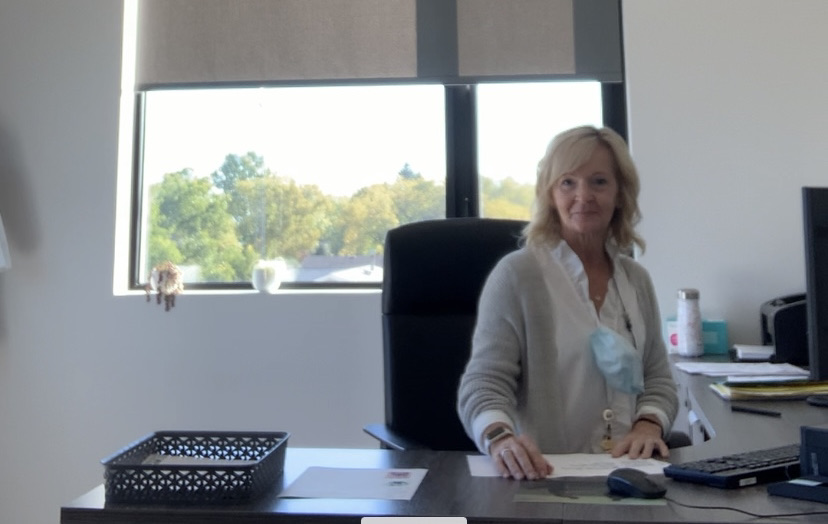Finding the time and money to enrol in optional professional development courses can be challenging for rural nurses and other health professionals.
Mandated courses such as Advanced Cardiovascular Life Support are offered frequently for nurses and other health providers so they can stay up to date and maintain their professional accreditation.
However, busy nurses sometimes struggle to expand their knowledge on health topics that are considered “optional.”

– Photo supplied by Sherilea Scheidt
Sherilea Scheidt, the clinical lead for the Provost Primary Care Network (PCN), understands the dilemma. With the nearest university two hours away, Scheidt said it’s not easy for her or her rural colleagues to tap into the health-focused professional development that is generally offered on evenings and weekends in larger centres.
Provost sits about 15 minutes west of the Saskatchewan border in east central Alberta, so registering for special interest courses also involves extra costs for travel and accommodation in addition to tuition.
So, when funding from RhPAP’s Rural Education and Advanced Learning (REAL) Program became available, the registered nurse jumped at the chance to enhance her own health interests through the Florida-based International Nurse Coach Course. Several variations of nurse coach courses are offered around the world, but this version caught Scheidt’s attention due to the professors involved and the curriculum’s focus. Scheidt completed the 96-hour-course online over six months, with REAL covering the cost of tuition and textbooks.
“It gives you a more level playing field, [as rural providers] have the opportunity [through REAL] to attend something at a higher educational level without it costing you … money,” she said of the RhPAP grant.
Scheidt supports lifelong learning, but she doubts she would have both paid out of pocket for this course and given extensive personal time to complete the clinical and practical components and assignments required while she continued to work part-time. With the course costs covered by RHPAP, she didn’t mind investing her own time to complete the course.
“It gives you a more level playing field, [as rural providers] have the opportunity [through REAL] to attend something at a higher educational level without it costing you … money.”
-Sherilea Scheidt, clinical lead for the Provost Primary Care Network, on the benefits of RhPAP’s Rural Education and Advanced Learning (REAL) Program grant
Amy Deagle, Director of Health Professions, explained that REAL is a great way for health professionals to broaden their health-care knowledge in a way that serves both their personal interests and their community.
“One of the requirements of REAL funding is that the health-care professional will be able to offer enhanced health services in their community, because of this extra training. I think it’s such a great initiative to support the health provider’s specific area of interest in a way that also benefits their rural community.”
The course, which Scheidt started in January 2020, proved to be a good opportunity to learn about COVID-19 early in the pandemic, and also reaffirmed Scheidt’s belief that patients often require more time with health professionals than acute care or a regular doctor’s appointment can offer.
“It was like … we save them from the initial trauma, maybe a motor vehicle accident or a massive MI [acute myocardial infraction or heart attack], or they have a baby, and then we send them home … and we really don’t teach [patients] how to carry on,” she explained.
At the PCN, Scheidt schedules longer appointments for her patients so together they can get to the heart of matter.
“People just really need to be heard and given enough time, they come up with their own goals a lot of [the] time.”
“One of the requirements of REAL funding is that the health-care professional will be able to offer enhanced health services in their community, because of this extra training. I think it’s such a great initiative to support the health provider’s specific area of interest in a way that also benefits their rural community.”
-Amy Deagle, RhPAP’s Director of Health Professions
While recognizing some client’s health issues are multi-faceted, Scheidt now puts a greater emphasis on the emotional, environmental, financial, intellectual, occupational, physical, social, and spiritual factors that can come into play with a patient’s health issues. The eight categories were emphasized as providing a full picture of a person in the holistic-focused coaching course.
“I’m more perceptive now to the fact that there are usually reasons why somebody hasn’t changed their behaviour pattern, and they keep repeating and repeating,” she said.
Applying her coach training to patients has Scheidt allowing more time to share their stories and explore the factors and issues that may influence the nature of their treatment and recovery. For example, cultural traditions may impact a person’s food preferences and can cause high blood sugar levels, or an unsupportive family may be the reason why a new mom is struggling with breast feeding. By recognizing some of these issues, it can help the patient and coach address them.
Scheidt said her employer was on board with her completing the course as the information she learned would have a positive impact not only on her nursing coach role, but also on the community.
“I grew as a person…. You can’t really [help] another person until you actually look into yourself a little bit [and ask] why you do the things you do?
“It makes you really look internally at your beliefs before you go forward to help anyone else.”
More information on RhPAP’s REAL Program is available here.
